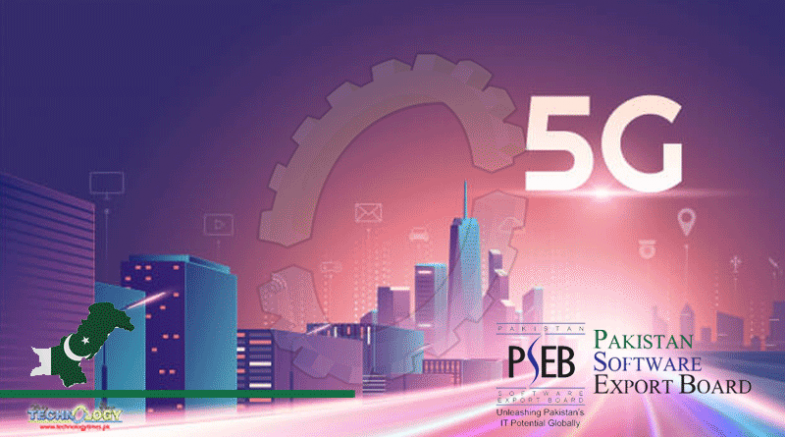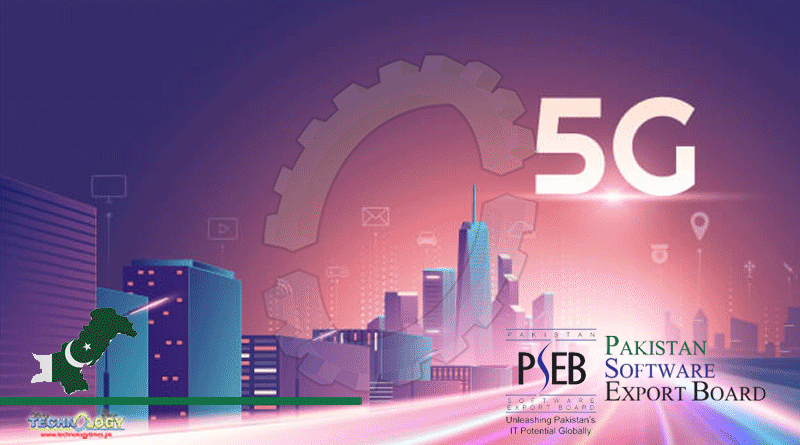Syed Aminul Haq Said 5G Internet Will Be Launched At December, 2021. Announced This While Addressing Memorandum Of Understanding (MoU)

The Federal Minister for Information Technology and Communications Syed Aminul Haq has said the 5G internet will be launched by December, 2021. He announced this while addressing the Memorandum of Understanding (MoU) signing ceremony between Pakistan Software Export Board (PSEB) and Hyderabad Institute of Arts, Science and Technology (HIAST) at a local hotel here Friday. “We have to increase 4G penetration to 50 percent before launching the 5G,” he said, adding that the 4G internet users now constituted 41 percent of the mobile internet users. He apprised that 1.4 million new 4G users were being added every month and that at the present pace the desired percentage of the fourth generation mobile internet users would be attained by the end of 2021.
Haq said the federal government was also encouraging the manufacture and assembly of the mobile phones in Pakistan with the aim of reducing the high prices of the cell phones.“We want our youth to buy a good quality mobile phone for Rs.8,000 to Rs12,000 instead of paying Rs.50,000 to Rs.100,000,” he added. He lamented that if the previous governments had planned the same much earlier the prices of the cell phones would have been low besides creation of employment. The minister said that the government was trying to provide 3G and 4G internet services in the areas where those services were currently not available. According to him, Rs.21.9 billion had been spent on expansion of those services so far. He informed that after taking charge of the ministry he announced a Rs.550 million IT project for Sanghar district. The minister credited the government for increasing the country’s IT exports from $995 million in 2019 to $1.23 billion by June, 2020, despite the slump in the global economy due to COVID-19.
He expressed the hope that the IT exports would potentially grow to $5 billion by the end of the present government’s tenure in 2023. “Prime Minister Imran Khan’s vision is to see the digital Pakistan and the first objective is to ensure connectivity,” he underlined. Haq said the government wanted to play a role for training, capacity building, coordination and facilitation for the IT industry. The Muttahida Qaumi Movement-Pakistan’s MNA Sabir Hussain Qaimkhani said 8 years ago MNA Salahuddin of MQM-P tried to establish an information technology institute in Hyderabad but the dream could not be realized. He offered complete support for setting up of an IT park in Hyderabad, also assuring that the district’s educated youth had the potential of offering global quality IT services. The Managing Director of PSEB Osman Nasir said the IT minister had directed the board to expand the IT industry which was limited to only 3 cities of the country. He apprised that the PSEB was trying to acquire between 5,000 square feet to 10,000 square feet land for setting up an information technology park in Hyderabad.
“This will trigger the growth of the IT sector in the cities considered to be of secondary and tertiary importance by the industry,” he observed. The president of Pakistan Software Houses Association (PASHA) said Hyderabad could become a primary player in the sector with the government’s and industry’s support. Barkan Saeed, an office bearer of PASHA, urged the PM Khan to lend his full support to the IT sector to help it become the $10 billion industry in the next few years. “I demand that the PM should declare the IT sector as a strategic industry. A framework should also be declared by the federal and provincial governments and the Federal Board of Revenue,” he said. Saeed advised the IT workers of Hyderabad to focus on developing their skills further. The Vice Chairman Hyderabad Information and Software Houses Association (HISHA) Hassan Syed said the economy of emerging technologies was projected to grow to $50 trillion by 2050.
“Pakistan’s population is 3 percent of the world. If we get a proportionate share in IT exports by 2050, the country would be earning $1.5 trillion,” he said. Earlier the federal minister inaugurated Software Technology Park at HIAST campus. Speaking on the occasion, Haq said the MoU between PSEB and HIAST was a major achievement. He added that the MoU covered multifaceted cooperation in terms of establishing a software technology park at the university campus, capacity building, online training, developing linkages between academia and the industry besides facilitating the IT startups and freelancers. According to him, currently there were 16 software technology parks across Pakistan with 1,169,500 sq ft of space offering state of the art facilities to the technology companies. He noted that Pakistan’s IT industry had achieved significant expansion and growth in exports but the IT industry remained concentrated in Karachi, Islamabad and Lahore only. “As a consequence, Pakistanis seeking jobs in the tech sector flock to these 3 cities,” he observed. According to him, development of the IT industry in secondary and tertiary cities of Pakistan would generate economic growth and prevent brain drain to major tech hubs.
He stressed upon the need for close liaison between the Industry and public sector entities for ensuring holistic growth of Pakistan’s IT sector. He briefed that other benefits of a technology park included development of a related ecosystem, such as a strong science base in the surrounding areas of a technology park and also provides for development of an entrepreneurial culture as tenants of the technology park nurture talent which results in fostering start-ups, technology experts and entrepreneurs. Earlier the MD PSEB Osman Nasir informed that a software technology park would soon be inaugurated in Swat. He added that software technology parks would also be set up in Sir Syed University of Engineering and Technology (SSUET) Karachi, NED University of Engineering and Technology, Karachi, Quaid-e-Awam University of Engineering, Sciences & Technology University (QUEST), Nawabshah, Bannu University, FAST NUCES, Faisalabad and Balochistan University of Information Technology, Engineering and Management Sciences, Quetta.
This news was originally published at Nation
